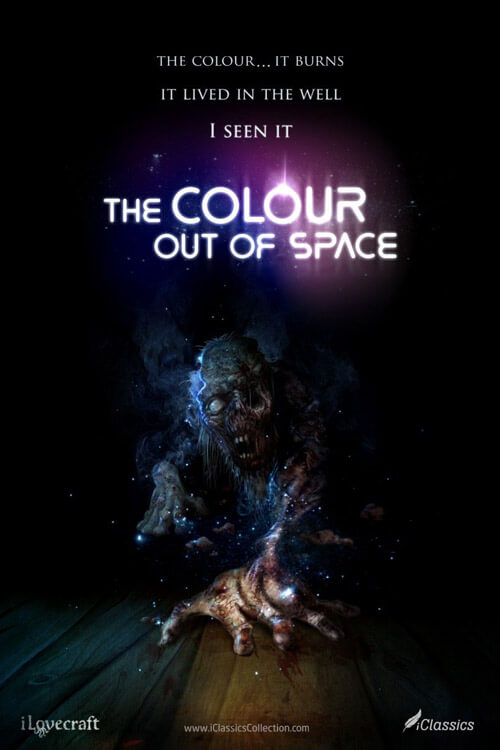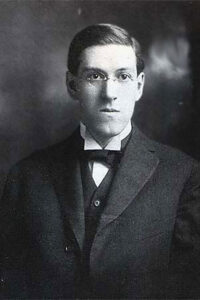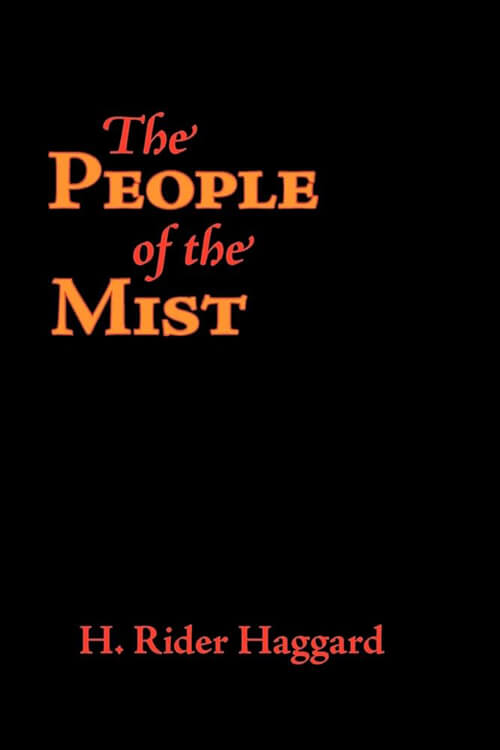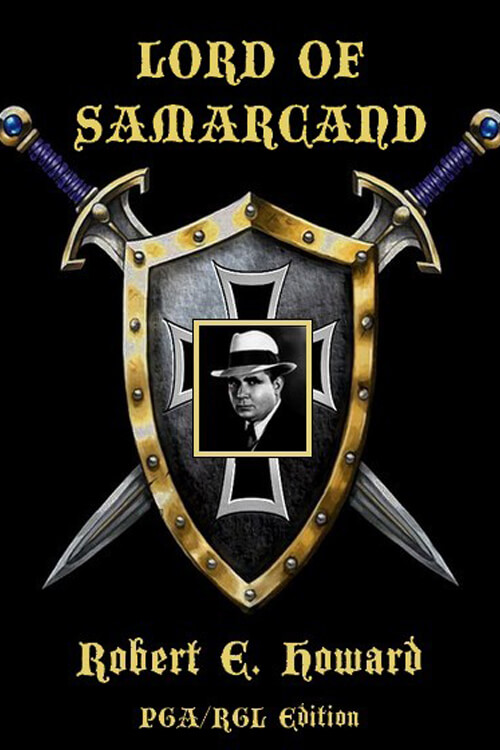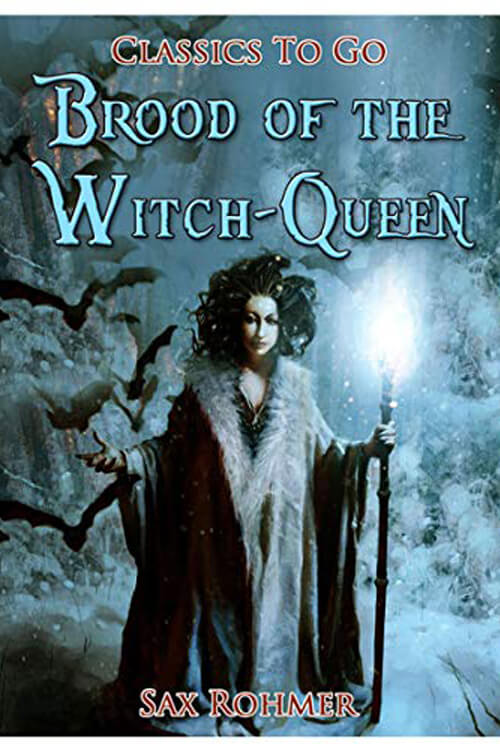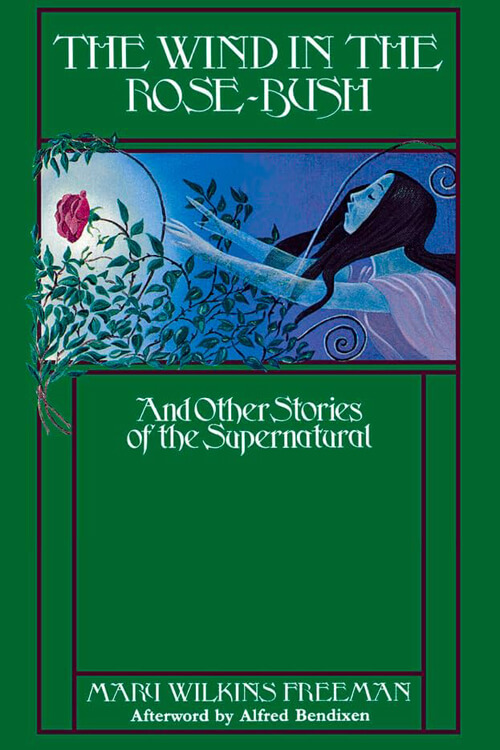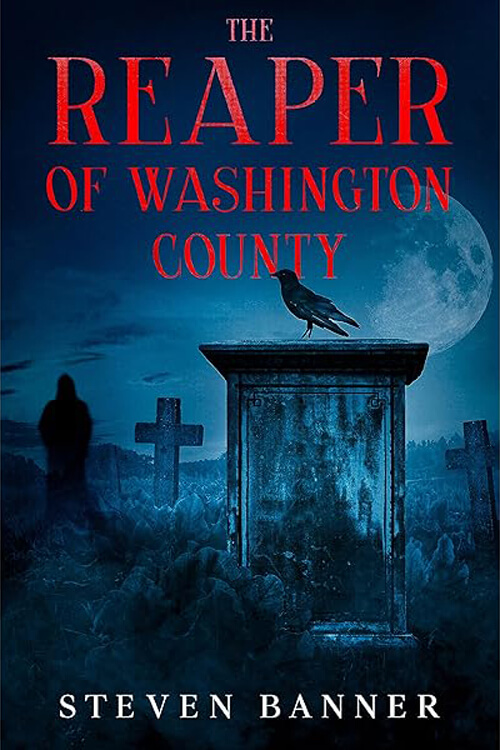
Colour Out of Space
When I went into the hills and valleys to survey for the new reservoir, they told me the place was evil. They told me this in Arkham, and because that is an ancient town full of witch legends, I thought the evil must be something grandams had whispered to children through centuries. The name “blasted heath” seemed odd and theatrical to me, and I wondered how it had come into the folklore of the Puritan people. Then I saw that dark westward tangle of glens and slopes and ceased to wonder at anything besides its elder mystery. It was morning when I saw it, but a shadow lurked always there. The trees grew too thickly, and their trunks were too big for any healthy New England wood. There was too much silence in the dim alleys between them, and the floor was too soft with the dank moss and mattings of infinite years of decay.
There were little hillside farms in the open spaces, mainly along the old road line, sometimes with all the buildings standing, sometimes with only one or two, and sometimes with only a lone chimney or fast-filling cellar. Weeds and briers reigned, and furtive wild things rustled in the undergrowth. Upon everything was a haze of restlessness and oppression, a touch of the unreal and the grotesque, as if some vital element of perspective or chiaroscuro were awry. I did not wonder that the foreigners would not stay, for this was no region to sleep in. It was too much like a landscape of Salvator Rosa, too much like some forbidden woodcut in a tale of terror.
But even all this was not so bad as the blasted heath. I knew it the moment I came upon it at the bottom of a spacious valley, for no other name could fit such a thing, or any other thing fit such a name. It was as if the poet had coined the phrase from seeing this particular region. It must, I thought as I viewed it, be the outcome of a fire, but why had nothing new ever grown over these five acres of grey desolation that sprawled open to the sky like a great spot eaten by acid in the woods and fields? It lay mainly north of the ancient road line but encroached a little on the other side. I felt an odd reluctance about approaching and did so at last only because my business took me through and past it. There was no vegetation on that broad expanse, only a fine grey dust or ash which no wind seemed ever to blow about. The trees near it were sickly and stunted, and many dead trunks stood or lay rotting at the rim. As I walked hurriedly by, I saw the tumbled bricks and stones of an old chimney and cellar on my right and the yawning black maw of an abandoned well whose stagnant vapours played strange tricks with the hues of the sunlight. Even the long, dark woodland climb beyond seemed welcome in contrast, and I marvelled no more at the frightened whispers of Arkham people. No house or ruin was nearby; even in the old days, the place must have been lonely and remote.
Read or download Book
Howard Phillips Lovecraft
Howard Phillips Lovecraft (August 20, 1890 – March 15, 1937) was an American writer of weird, science, fantasy, and horror fiction. He is best known for his creation of the Cthulhu Mythos.
Biography.
Born in Providence, Rhode Island, Lovecraft spent most of his life in New England. After his father’s institutionalization in 1893, he lived affluently until his family’s wealth dissipated after the death of his grandfather. Lovecraft then lived with his mother, in reduced financial security, until her institutionalization in 1919. He began to write essays for the United Amateur Press Association, and in 1913, wrote a critical letter to a pulp magazine that ultimately led to his involvement in pulp fiction. He became active in the speculative fiction community and was published in several pulp magazines. Lovecraft moved to New York City, marrying Sonia Greene in 1924, and later became the centre of a wider group of authors known as the “Lovecraft Circle”. They introduced him to Weird Tales, which would become his most prominent publisher. Lovecraft’s time in New York took a toll on his mental state and financial conditions. He returned to Providence in 1926 and produced some of his most famous works, including The Call of Cthulhu, At the Mountains of Madness, The Shadow over Innsmouth, and The Shadow Out of Time. He would remain active as a writer for 11 years until his death from intestinal cancer at the age of 46.
Lovecraft’s literary corpus is based on the idea of cosmicism, which was simultaneously his philosophy and the central theme of his fiction. Cosmicism posits that humanity is an insignificant part of the cosmos and could be swept away at any moment. He incorporated fantasy and science fiction elements into his stories, representing the perceived fragility of anthropocentrism. This was tied to his ambivalent views on knowledge. His works were primarily set in a fictionalized version of New England. Civilizational decline also plays a significant role in his works, as he believed that the West was in decline during his lifetime. Lovecraft’s early political views were conservative and traditionalist; additionally, he held many racist opinions for much of his adult life. Following the Great Depression, Lovecraft’s political views became more socialist while remaining elitist and aristocratic.
Throughout his adult life, Lovecraft could never support himself from his earnings as an author and editor. He was virtually unknown during his lifetime and was almost exclusively published in pulp magazines before his death. A scholarly revival of Lovecraft’s work began in the 1970s, and he is now regarded as one of the most significant 20th-century authors of supernatural horror fiction. Many direct adaptations and spiritual successors followed. Works inspired by Lovecraft, adaptations or original works, began to form the basis of the Cthulhu Mythos, which utilizes Lovecraft’s characters, setting, and themes.

